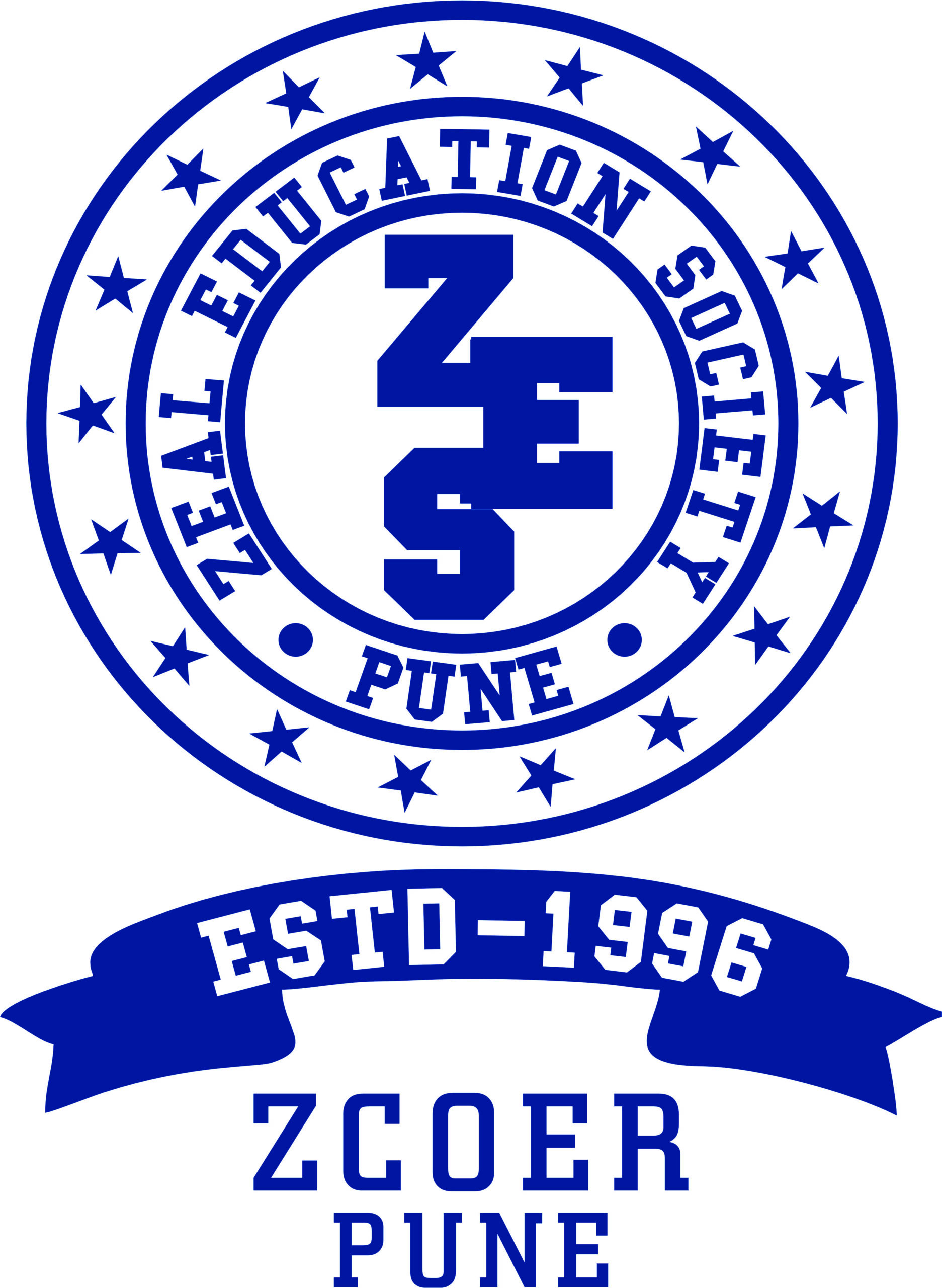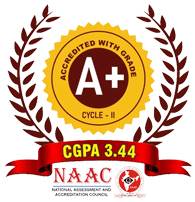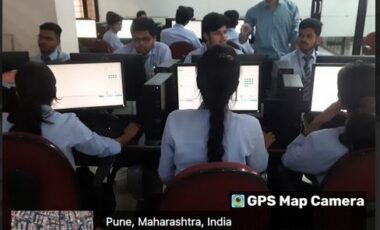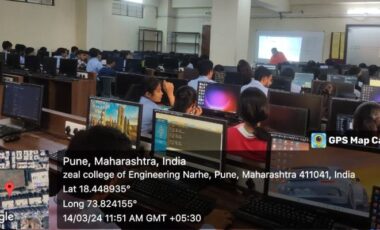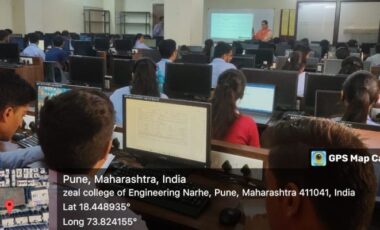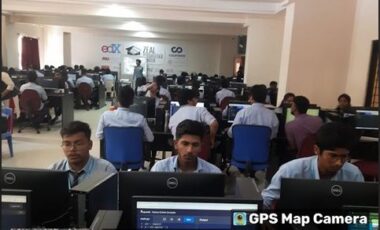Computer Engineering
- Computer Engineering
- About Department
- From HOD Desk
- Vision & Mission
- PEO & PSO, PO & CO
- Autonomy Constitution
- Faculty Profile
- Lab Facilities
- Innovations in Teaching – Learning
- Research & Publication
- Skill Development
- Faculty Achievement
- Students Achievement
- Student Association
- Placement and Internship
- Center of Excellence
- Life @ Computer
- Downloads
- Newsletters
1. Introduction
In today’s rapidly evolving technology landscape, practical exposure to industry-standard software tools is essential for Computer Engineering students. While theoretical knowledge forms the foundation of engineering education, hands-on experience bridges the gap between academic learning and real-world industry expectations.
The Computer Engineering Department at Zeal College of Engineering and Research, Pune, has introduced Hands-on Training Workshops as an innovative teaching-learning methodology. These workshops equip students with practical skills, enhance their proficiency in software tools, and improve their readiness for industry roles.
This report outlines the goals, implementation, significance, and effectiveness of this methodology in the Computer Engineering curriculum.
2. Statement of Clear Goal
The primary goal of implementing Hands-on Training Workshops is to:
- Equip students with practical skills in software development, testing, and deployment.
- Bridge the gap between theory and practice, allowing students to apply classroom concepts to real-world scenarios.
- Prepare students for industry expectations by exposing them to widely used software tools and development environments.
- Enhance problem-solving and debugging skills through hands-on exercises.
- Foster an industry-oriented learning approach, making students more competitive in placements and internships.
3. Use of Appropriate Methods
To achieve the above objectives, the following methodologies are employed in Hands-on Training Workshops:
a) Industry-Standard Software Training Workshops:
Regular training sessions on essential software tools such as:
- Programming and Development Tools: Python, Java, C++, Git,
- Database Management: MySQL, MongoDB, PostgreSQL.
- Software Development Frameworks: Spring Boot, Django, Angular, React.
- Cloud Computing & DevOps: AWS, Google Cloud, Docker, Kubernetes.
- Machine Learning & AI: TensorFlow, OpenCV, NLP Libraries.
- IoT and Embedded Systems: Arduino, Raspberry Pi.
b) Guest Lectures from Industry Professionals:
- Experts from IT companies, startups, and research institutions share insights on industry practices.
- Discussions on emerging trends, software engineering best practices, and career guidance.
c) Practical Implementation & Live Projects:
- Students participate in real-world coding exercises, mini-projects, and industry-inspired assignments.
- Workshops are designed to encourage hands-on practice, debugging, and solution-building.
d) Hackathons & Coding Challenges:
- Encouraging students to participate in coding competitions such as Smart India Hackathon, Google Code.
- Organizing internal hackathons to develop problem-solving skills.
e) Collaborative Learning & Peer Reviews:
- Students work in teams on projects, promoting teamwork and code review skills.
- Peer assessments and mentor evaluations ensure interactive learning.
f) Significance of Results
The introduction of Hands-on Training Workshops has resulted in:
a) Improved Software Proficiency:
Students gain hands-on experience with industry-standard tools and technologies.
b) Development of Practical Skills:
Application-based learning ensures students can implement concepts effectively.
c) Increased Industry Readiness:
Workshops align with job market requirements, making students better prepared for placements and internships.
d) Higher Placement Success:
Graduates with hands-on project experience stand out in campus recruitment drives.
e) Stronger Problem-Solving Abilities:
Real-time debugging and troubleshooting activities improve logical thinking.
5. Effectiveness Evaluation
The effectiveness of Hands-on Training Workshops is measured using various assessment techniques:
a) Pre- and Post-Workshop Assessments:
- Students undergo a baseline test before training and a final assessment after completion.
- Improvement in coding efficiency, debugging skills, and problem-solving is recorded.
b) Student Feedback Surveys:
- Feedback is collected to assess the impact and quality of workshops.
- Suggestions for enhancing learning outcomes are considered for future sessions.
c) Project-Based Evaluations:
- Faculty assesses student projects based on innovation, code quality, and real-world application.
d) Placement and Internship Tracking:
- Success rates in internships and job placements are monitored to measure industry readiness.
e) Participation in Competitions:
- Student involvement in coding competitions, hackathons, and industry certifications serves as an indicator of their skill development.
6. Hands-on Training
Workshops at Zeal College of Engineering and Research, Pune
a) Python Programming Workshop:
- Objective: Teach Python fundamentals and apply machine learning techniques.
- Outcome: Students built Python-based projects
b) Core Java & MySQL:
- Objective: Introduce students to Core Java and MySQL
- Outcome: Students successfully developed Java Applications.
c) Mern Stack:
- Objective: Hands-on training in Full-Stack Development
- Outcome: Develop a Full-Stack Web Application using the MERN Stack.
d) Web Development Workshop (Django Framework):
- Objective: Train students on full-stack web development using Django
- Outcome: Teams built and deployed dynamic web applications.
7. Conclusion
The implementation of Hands-on Training Workshops in the Computer Engineering Department at Zeal College of Engineering and Research, Pune, has significantly improved student engagement, technical proficiency, and industry preparedness.
By integrating real-world software tools, industry expert sessions, and project-based learning, students gain practical skills essential for their careers. Moving forward, expanding these workshops with AI-driven learning modules, virtual labs, and global certification programs can further enhance learning outcomes and placement success rates.
This innovative teaching-learning methodology ensures that students graduate with not just theoretical knowledge, but also hands-on expertise, making them competent and confident professionals in the Computer Engineering domain.
Submit your review | |
1 2 3 4 5 | |
Submit Cancel | |
